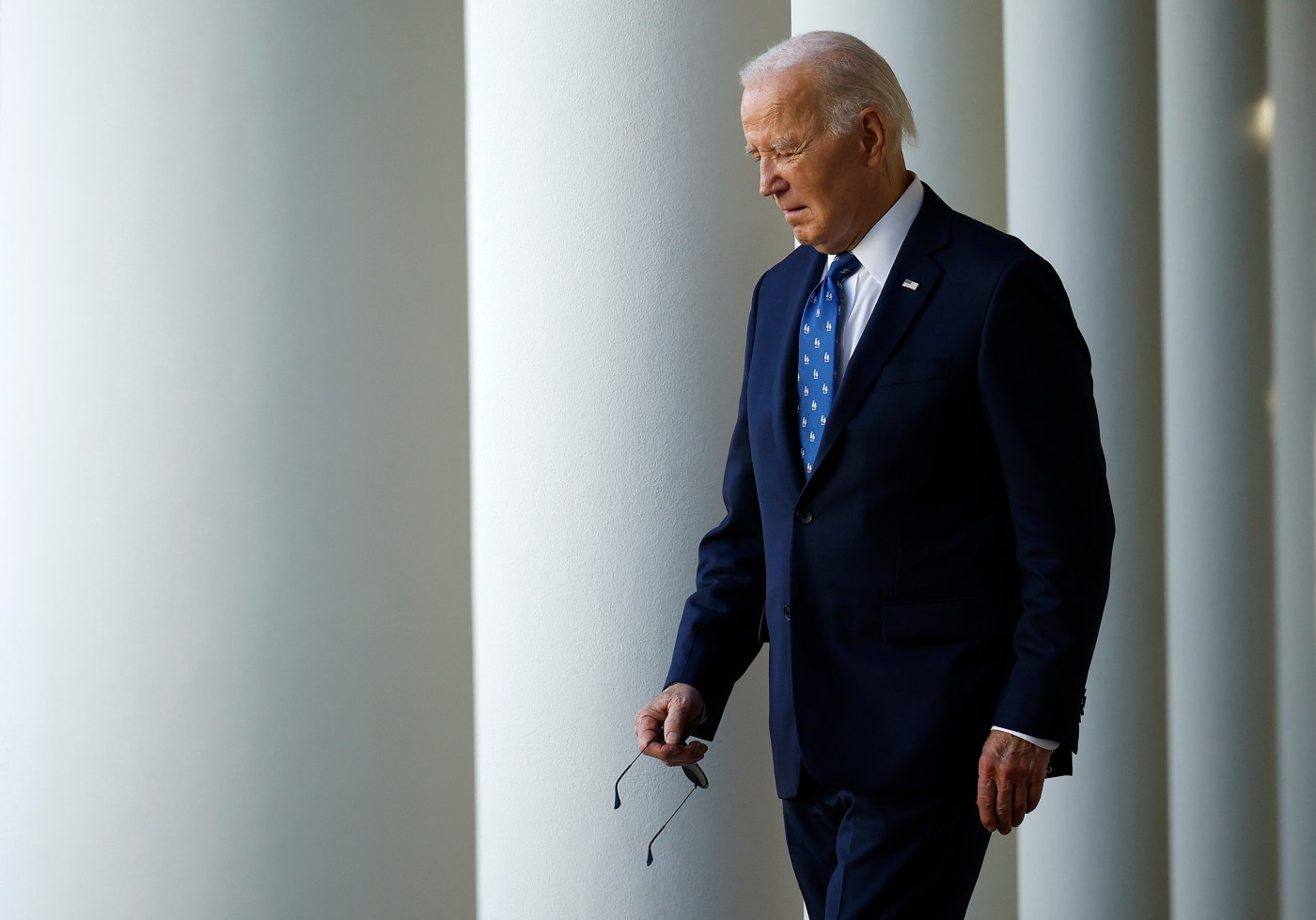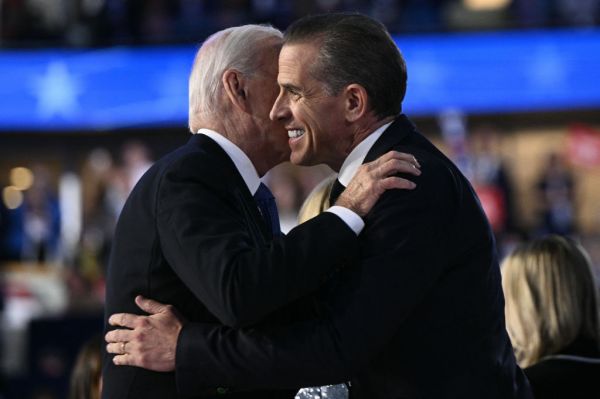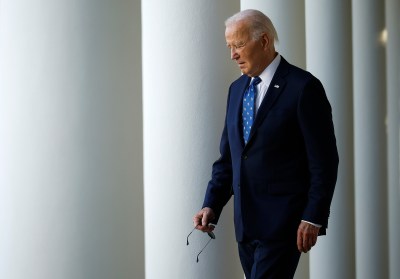When Joe Biden took his oath of office in January 2021, he outlined a bold vision for his presidency. “Together, we shall write an American story of hope, not fear,” he said on the steps of the U.S. Capitol which, just days before, had been swarmed by protesters rioting in the name of Donald Trump. “May this be the story that guides us, the story that inspires us, and the story that tells ages yet to come that we answered the call of history. We met the moment. Democracy and hope, truth and justice, did not die on our watch but thrived.”
Nearly four years later, Biden’s single term is limping to an end, with the president—dogged by concerns about his age and mental acuity that eventually forced him to end his reelection bid—more unpopular than he’s ever been, increasingly out of view, and widely considered the primary culprit in Democrats’ post-election autopsies. His recent decision to issue a sweeping pardon to his son Hunter—after repeatedly pledging not to do so—led several prominent Democrats and media allies to accuse him of selfishness and putting “personal interest ahead of duty” in a way that will “tarnish his reputation.”
There are plenty of specific examples of Biden’s failures, to be sure. Persistent inflation made worse by excessive federal spending that even some Democratic economists warned would overheat the economy. The disastrous withdrawal from Afghanistan, pushed through despite the admonitions from top military leaders. A lack of urgency about illegal immigration. His disinterest in even trying to unify a divided country. His decision—after implying in 2020 he’d be a “bridge” candidate—to launch a quixotic reelection bid when his advanced age and mental decline were all too apparent in private and in public.
But even setting all that aside, Biden’s presidency has been an unmitigated disaster on its own terms: His entire raison d’être was to keep Trump—and Trumpism—from returning to the Oval Office. “If Trump wasn’t running, I’m not sure I’d be running,” the president told donors a year ago this week. “We cannot let him win.”
Twelve months and one belated switcheroo atop the ticket later, Democrats are staring at four more years of Trump and a generation of Republican politics shaped in his image—a reality that nominating and electing Biden in 2020 was supposed to prevent. Instead, so much of what they feared would happen had Trump won a second term in 2020 threatens to come to pass: A GOP president with authoritarian instincts, more knowledgeable in the position and unconstrained by a quest for reelection, moving forward with alacrity on a conservative populist agenda without regard for the norms and strictures of constitutional governance.
To be sure, Democrats looking for silver linings can still find them in the big-government legislative agenda that defined Biden’s single term in office. The president signed into law $1.2 trillion in infrastructure spending, hundreds of billions of dollars for semiconductor manufacturing and high-tech research, and the “Inflation Reduction Act” supposedly to aid in the economic recovery by way of energy subsidies and expanding federal health-care programs. These are progressive achievements any Democratic president might be proud of, Democratic defenders of Biden’s tenure say.
But discarding the partisan blinders, Biden’s term in office looks less like one of progressive success and more like one of missed opportunities for building a lasting bulwark against the excesses of Trump and Trumpism. An alternative path for the president might have involved treating Trump less like a vanquished foe and temporary aberration and more like an ongoing civic emergency. In this parallel universe, the Biden administration would have prioritized restoring and bolstering the norms of our liberal democracy: the rule of law, the system of checks and balances, the separation of powers. Biden might have done this even—or especially—at the expense of the progressive laundry list of projects and proposals that Democrats so often take for granted.
Instead, Biden often thumbed his nose at norms when they clashed with his party’s agenda.
He called for doing away with the Senate’s filibuster rules to pass a codification of abortion rights. He used executive action and an exceedingly expansive reading of existing law to grant broad forgiveness of student loans, only for the Supreme Court to repeatedly reject that reading and strike down the administration’s multiple attempts to implement it. And while Biden supported updates to the two laws governing presidential transition and the counting of electoral votes to avoid a repeat of the failed effort to overturn the 2020 election, other loopholes to procedural aspects of the executive branch have gone untouched.
As Jack Goldsmith, the former George W. Bush-era assistant attorney general and conservative legal scholar, recently argued, there are plenty of vulnerabilities in the Federal Vacancies Reform Act that presidents of both parties have temporarily taken advantage of to get around the Senate’s advice and consent powers on executive branch appointments. Goldsmith noted that he and Bob Bauer, a Democratic lawyer who served as Barack Obama’s White House counsel and advised Biden, made proposals to shore up those vulnerabilities that “went nowhere” during the past four years.
And Biden’s unconditional pardon for his son Hunter—who was convicted earlier this year on federal gun charges and pleaded guilty to federal tax charges—is the coup de grâce for the president’s misreading of his mandate from voters, which was far narrower than he was led to believe: restore normalcy to the White House. The reaction from elected Democrats is instructive.
“President Biden’s decision put personal interest ahead of duty and further erodes Americans’ faith that the justice system is fair and equal for all,” Sen. Michael Bennet of Colorado tweeted.
Rep. Marie Gluesenkamp Perez, who just won a close reelection to her seat in Washington state, was arguably even blunter. “President Biden’s pardon of his son confirms a common belief I hear in Southwest Washington: that well-connected people are often gifted special treatment by a two-tier justice system,” she said. “The President made the wrong decision. No family should be above the law.”
These responses seem to anticipate the need congressional Democrats will have long after Biden has departed public life to oppose Trump with authority and credibility—assets the president had squandered as his term went on.
It’s worth recalling that the premise of Biden’s 2020 White House run was to restore a certain functional and moral order to the chief executive. “Our current president has failed in his most basic duty to the nation,” Biden said in the speech to the virtual Democratic National Convention that year. “He’s failed to protect us. He’s failed to protect America. And, my fellow Americans, that is unforgivable.”
Over the next four years, will Democrats come to a similar realization about Trump’s successor?







Please note that we at The Dispatch hold ourselves, our work, and our commenters to a higher standard than other places on the internet. We welcome comments that foster genuine debate or discussion—including comments critical of us or our work—but responses that include ad hominem attacks on fellow Dispatch members or are intended to stoke fear and anger may be moderated.
With your membership, you only have the ability to comment on The Morning Dispatch articles. Consider upgrading to join the conversation everywhere.